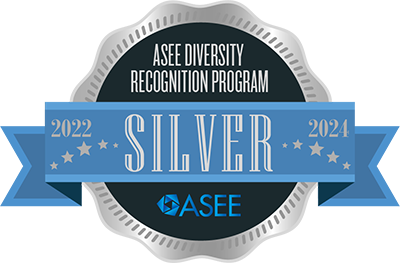 The UNL College of Engineering requires all faculty candidates to submit teaching and/or research statements with their application packages (depending on whether the position will involve a research and/or teaching apportionment). The College is also committed to improving diversity and inclusion within the College, having received the ASEE Diversity Recognition Program’s Silver Award. Consequently, all faculty candidates must also submit a diversity statement that describes their knowledge and awareness, experience and activities, and plans with respect to diversity and inclusion. For more information on how to write a diversity statement, please see this website.
The UNL College of Engineering requires all faculty candidates to submit teaching and/or research statements with their application packages (depending on whether the position will involve a research and/or teaching apportionment). The College is also committed to improving diversity and inclusion within the College, having received the ASEE Diversity Recognition Program’s Silver Award. Consequently, all faculty candidates must also submit a diversity statement that describes their knowledge and awareness, experience and activities, and plans with respect to diversity and inclusion. For more information on how to write a diversity statement, please see this website.
Faculty search committees are asked to use the ‘holistic’ rubrics below when assessing candidate statements, and are encouraged to refer to the ‘extended’ rubric for more guidance if they wish. At the beginning of each academic calendar year, search committee members attend training sessions to increase their awareness of implicit biases in the hiring process and to learn how to use the holistic rubrics.
The training emphasizes the following:
- The use of rubrics reduces implicit bias in search committee assessments of faculty candidates.
- The department and search committee may decide to give different weightings to different categories on each of the assorted rubrics, based on the nature of the position being hired.
- Search committee members are expected to complete these rubrics on their own, rather than as a group. Multiple members of the committee should be assigned to complete the assessments for each faculty candidate.
- The rubrics are not to be interpreted as strict quantitative measures; a composite score of 10 should not be considered to be significantly different from a score of 9. Instead, the rubrics are a guide to facilitate discussion, identifying when members of the search committee appear to have different views of the candidate's qualifications and providing a framework for further discussion.